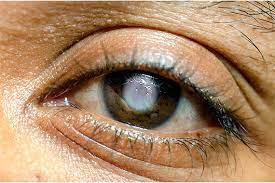


Date: 08 Jul 2025
Glaucoma is a group of progressive eye disorders that damage the optic nerve—the part of the eye that sends visual signals to the brain. Often called the "silent thief of sight," glaucoma typically has no early warning signs or symptoms until significant vision loss has occurred. This makes early detection and prevention strategies, including nutritional support, absolutely vital.
The most common form of the disease is primary open-angle glaucoma, where fluid buildup in the eye causes increased pressure (intraocular pressure or IOP), leading to optic nerve damage. Over time, this damage can cause blind spots in your peripheral vision and eventually lead to total vision loss if left untreated. Other forms, like angle-closure glaucoma or normal-tension glaucoma, may arise from different mechanisms but can still result in the same irreversible damage.
Vitamin A is essential for maintaining healthy photoreceptor cells in the retina. A deficiency can impair night vision and increase oxidative stress, which may lead to optic nerve damage over time. People with low vitamin A intake are therefore at higher risk for progressive visual impairment, including glaucoma.
While omega‑3s are widely known for their anti-inflammatory benefits, a balance with omega‑6s is crucial. Omega‑6 fatty acids support cell membrane integrity and prostaglandin function, which are important for regulating eye pressure. Deficiency may disrupt this balance and increase glaucoma susceptibility.
Although iron and calcium are essential minerals, excessive intake can increase oxidative stress and calcium load in retinal ganglion cells. This has been linked to faster glaucoma progression, particularly in individuals already at risk. Monitoring intake is especially important in older adults using multivitamin complexes.
These antioxidant vitamins help reduce oxidative stress in the eye tissues. Vitamin A supports the retina; Vitamin C maintains blood vessel health; and Vitamin E protects cell membranes from free radicals. Together, they contribute to a lower risk of optic nerve damage.
Zinc plays a critical role in antioxidant enzyme systems in the eye. It supports glutathione peroxidase activity and helps maintain retinal pigment epithelial health. A zinc deficiency may reduce the eye’s natural defenses, making the optic nerve more vulnerable to damage.
Lutein is a carotenoid found in the macula and retina, helping filter harmful blue light and neutralize oxidative stress. Glutathione, often referred to as the “master antioxidant,” protects nerve tissues from degeneration and may slow glaucoma progression by preserving mitochondrial health in the optic nerve.
This supplement offers a high dose of vitamin A in a bioavailable softgel form, supporting vision and immune system health. Ideal for individuals with vitamin A deficiency or those looking to support retinal function. It is especially useful for promoting tear production and night vision—both affected in glaucoma cases.
With a moderate dosage, this product provides an effective daily vitamin A intake for individuals needing to maintain vision and skin health. It's suitable for long-term use and may help slow down retinal degeneration associated with chronic eye conditions like glaucoma.
This unique formulation ensures enhanced absorption, especially in individuals with fat malabsorption issues. Its water-dispersible form makes it effective for people who need consistent and efficient vitamin A uptake for optic nerve protection.
Glutathione directly combats oxidative stress in the eyes and brain, helping protect optic nerve cells from damage. This vegan-friendly capsule is excellent for individuals looking to support detoxification and nerve health while managing intraocular pressure.
This advanced formula combines glutathione with vitamin C, selenium, and alpha-lipoic acid, providing a powerful antioxidant defense. It supports cellular regeneration and protects retinal ganglion cells from oxidative degeneration, common in glaucoma.
This all-in-one supplement contains vitamin A, C, E, and zinc—making it perfect for general eye health support. It’s ideal for individuals looking to prevent deficiencies without taking multiple pills and is particularly useful for older adults at risk of glaucoma.
No, vitamins and supplements cannot cure glaucoma. However, they can play a supportive role in reducing risk and slowing progression by strengthening the eye's natural defenses. Nutrients like vitamin A, C, E, zinc, lutein, and glutathione help reduce oxidative stress, support retinal health, and protect the optic nerve.
2. Which foods naturally help prevent glaucoma?
Foods rich in antioxidants and healthy fats are beneficial for eye health. Leafy greens like kale and spinach, carrots, sweet potatoes, eggs, oranges, berries, and fatty fish (like salmon and sardines) contain vitamins A, C, E, lutein, zeaxanthin, and omega fatty acids.
Iron and calcium are essential nutrients, but too much—especially from supplements—can lead to problems. Excess iron may increase oxidative damage in the eye, and too much calcium can interfere with fluid regulation, both of which may raise the risk of glaucoma. It’s important to get these minerals in balanced amounts under medical supervision, especially if you are at risk for eye diseases.
Glaucoma risk increases after age 40, particularly in people with a family history of the condition. However, it’s never too early to start protecting your eye health through proper nutrition, regular eye exams, and a healthy lifestyle.